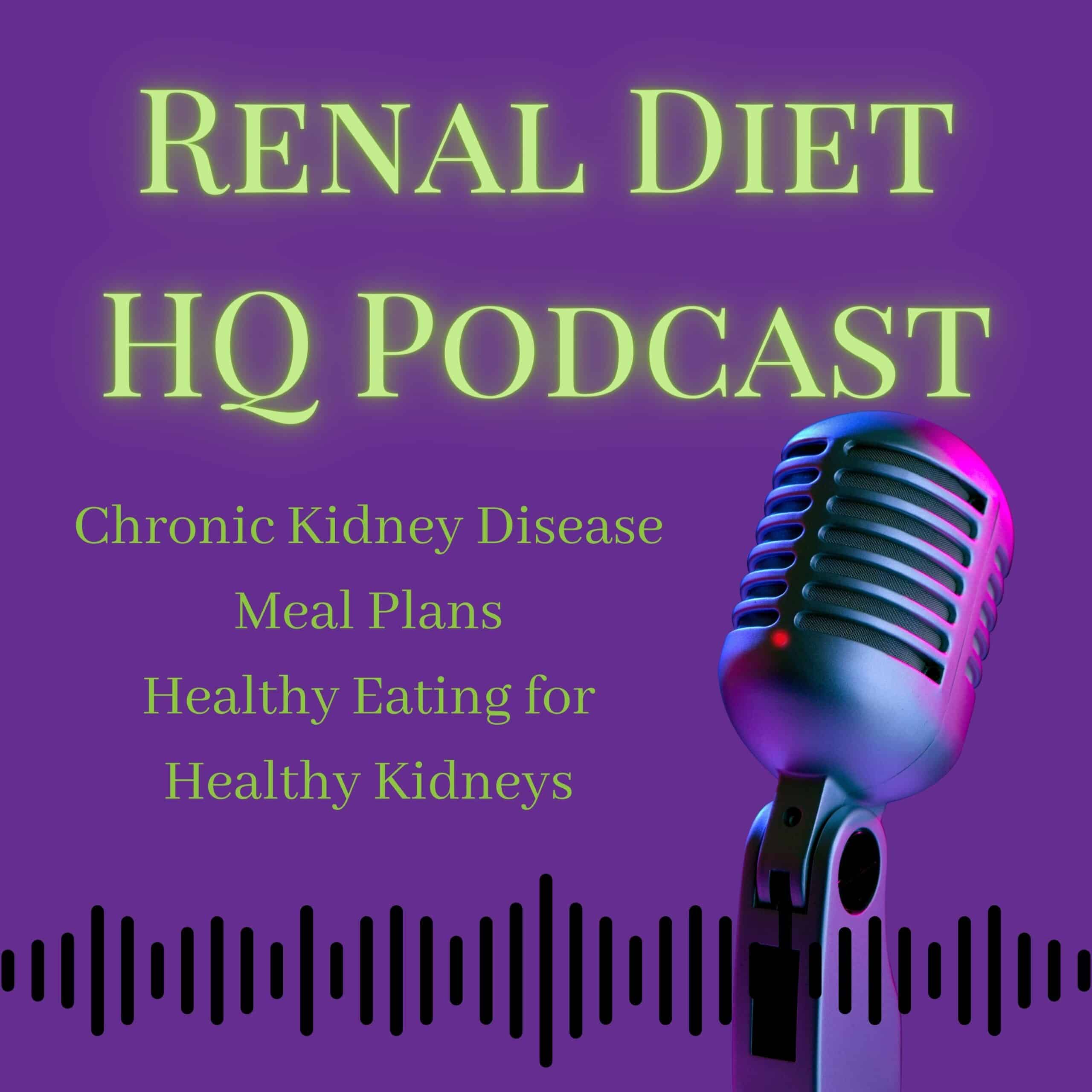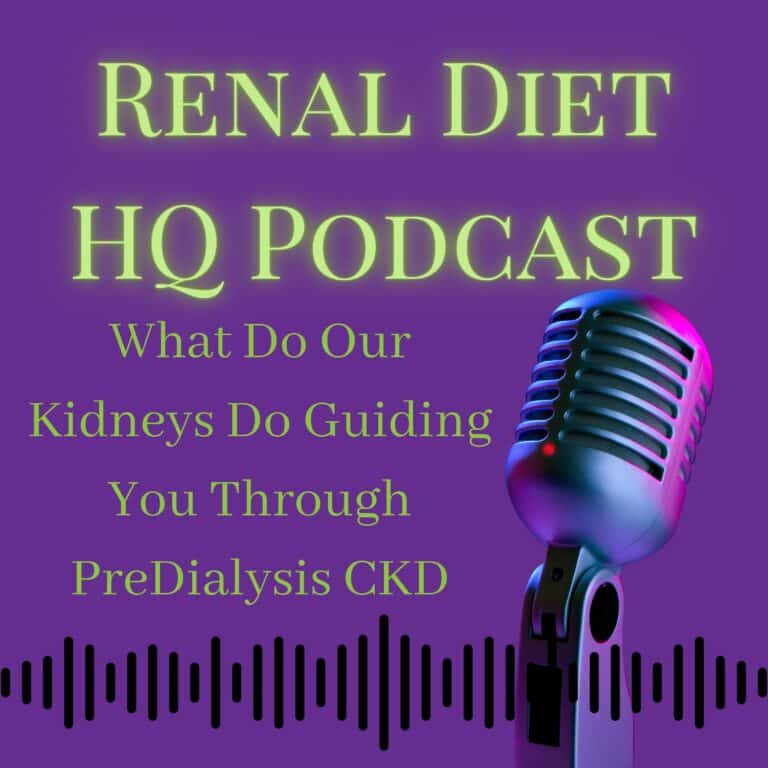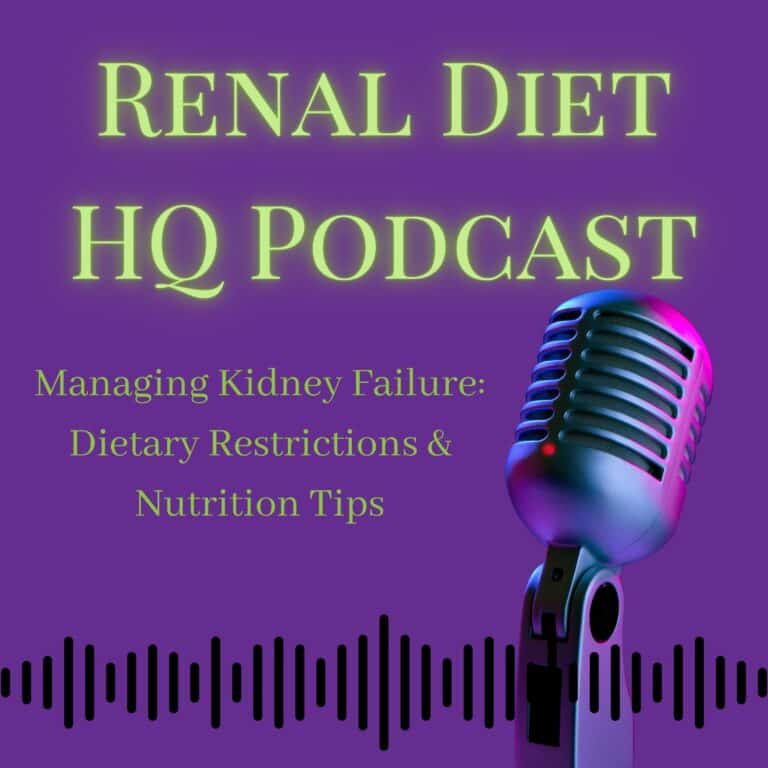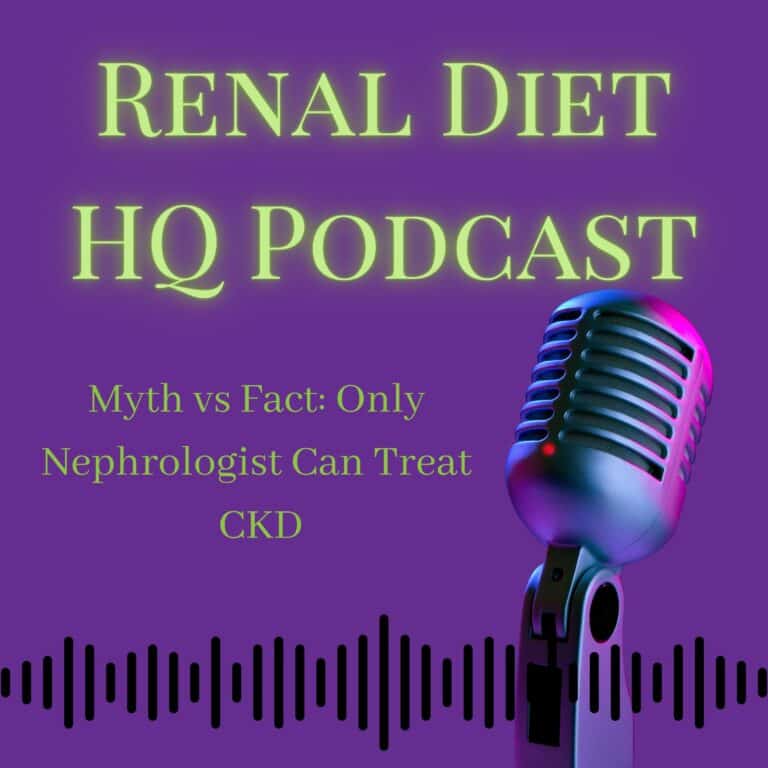Chronic Kidney Disease Meal Plans: Healthy Eating for Healthy Kidneys- Podcast
Podcast: Play in new window | Download

Living with chronic kidney disease (CKD) poses unique dietary challenges, but with the right guidance and knowledge, managing your diet can significantly improve your health and quality of life. In this comprehensive guide, we'll explore evidence-based advice to help you navigate your CKD dietary journey effectively. Join me as we delve into the expert insights provided by Mattia Ford, a registered dietitian nutritionist specializing in CKD, and discover practical strategies to serve your health better, one meal at a time.
For More Recipes and Ideas --->> Get Your Free Meals and Recipes That Are Perfect for Pre-Dialysis Diets, Pre-Dialysis with Diabetes, or Dialysis Diets.
The Decision to Embark on a CKD Diet
Making the decision to embark on a CKD diet is the first step towards safeguarding your health. It's crucial to commit to this dietary journey wholeheartedly, as it can profoundly influence the progression of kidney disease. Resolving to follow through with your CKD diet plan is essential, as consistency is key in managing your condition effectively. By dedicating yourself to this dietary regimen, you empower yourself to take control of your health and well-being.
Understanding the Basics: What to Eat
To embark on your CKD dietary journey, it's essential to understand the basics of what foods are necessary for healthy kidneys. Start by researching kidney-friendly recipes that fit into your diet plan, focusing on simple yet nutritious options. Breakfast ideas like oatmeal topped with fresh berries or vegetable stir-fry over rice can kick-start your day with CKD-friendly meals. Additionally, explore kidney-friendly dessert options like apple pie or strawberry ice cream to satisfy your sweet cravings while supporting kidney health.
Nutritional Considerations for CKD
Managing your CKD diet involves balancing protein, sodium, potassium, and phosphorus intake to support kidney health effectively. Understanding the impact of these nutrients on your condition is crucial for making informed dietary choices. Limiting high-sodium foods, avoiding excessive potassium intake, and monitoring phosphorus-rich foods are essential steps in managing CKD progression. By prioritizing proper nutrition, you can mitigate the strain on your kidneys and improve overall health outcomes.
Crafting Your CKD Diet Plan
Creating a personalized CKD diet plan is key to success on your dietary journey. Start by planning meals for the week, incorporating CKD superfoods like broccoli, pomegranates, and blueberries for added nutritional benefits. Variety and portion control are essential components of your meal plan, ensuring a well-balanced diet that supports kidney health. Explore resources like online courses for guidance in crafting a tailored CKD diet plan that meets your individual needs.
Navigating the Grocery Store
Efficiently navigating the grocery store with your CKD meal plan in hand is essential for maintaining your health. By creating a detailed shopping list and selecting kidney-friendly ingredients, you can ensure adherence to your dietary restrictions. Look for seasonal and organic options within your budget, prioritizing low-sodium and low-phosphorus choices. By making informed decisions at the grocery store, you set yourself up for success in managing your CKD diet effectively.
Meal Preparation and Organization
Proper meal preparation and organization are crucial for simplifying your CKD diet journey. Ensure you have all ingredients ready before starting meal preparation to streamline the cooking process. Experiment with recipe adaptation and ingredient substitutions to make cooking kidney-friendly meals easier and more enjoyable. Simplifying cooking techniques and utilizing one-pot recipes or slow cooker meals can save time and promote adherence to your CKD diet plan.
Overcoming Challenges and Adjusting
Starting a new CKD diet may present challenges, but with patience and determination, you can overcome them. Understand the importance of setting milestones and seeking support from healthcare providers and support groups during the adaptation phase. Recognize triggers for cravings and develop strategies to control them, adjusting your palette to new CKD-friendly foods over time. By staying motivated and persistent, you can successfully navigate the challenges of your dietary journey.
Managing Protein Intake and Hydration
Balancing protein intake and hydration is crucial for managing your CKD diet effectively. Limiting high-protein foods helps reduce strain on your kidneys and slow down CKD progression. Additionally, maintaining optimal fluid intake is essential for kidney health, but fluid restrictions may be necessary in later stages of CKD. Consult with your healthcare team to determine appropriate protein and fluid goals based on your individual needs and CKD stage.
Dining Out with CKD
Navigating the dining scene while following a CKD diet may present challenges, but with careful planning and communication, it's entirely possible. Prioritize kidney-friendly choices at restaurants by decoding the menu and asking questions about preparation methods and ingredients. Explore ethnic cuisine options with modifications to align with your dietary needs and restrictions. By advocating for your health and making informed choices, you can enjoy dining out while managing your CKD effectively.
Long-Term Success and Support
Achieving long-term success on your CKD dietary journey requires commitment, perseverance, and support. Work with a registered dietitian specializing in renal nutrition to create a personalized meal plan and receive ongoing guidance. Educate yourself about CKD-friendly foods and read food labels carefully to make informed choices at the grocery store. Seek support from online communities and local organizations to connect with others managing similar dietary challenges. Remember, consistency is key in managing CKD symptoms and improving overall quality of life.
Navigating a CKD diet requires dedication, knowledge, and support, but it's an essential step towards improving your kidney health and overall well-being. By following evidence-based advice and implementing practical strategies, you can successfully manage your CKD diet and achieve better health outcomes. Remember to prioritize your health, stay informed, and seek support when needed. Together, we can empower ourselves to serve our health better, one meal at a time.







